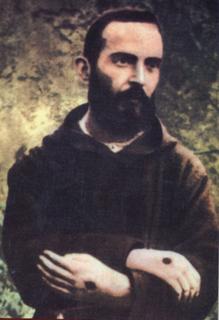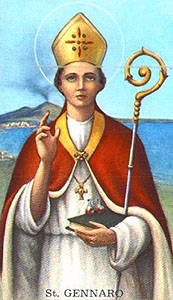From How to Get the Most Out of the Eucharist by Michael Dubruiel
Chapter 1 - Serve, Part 1
“You shall worship the Lord your God and him only shall you serve.”
In my home parish, St. John the Baptist in Fort Wayne, Indiana, the words Parate Viam Domini are inscribed over the front doors. The two years of Latin that I had in college and my knowledge of Scripture are enough for me to figure out that the message greeting me each Sunday are the words of St. John the Baptist in the desert, “Prepare the way of the Lord.” It is an excellent message to set the tone for the mystery that is about to be celebrated.
P R E PA R AT I O N
I remember how differently I approached the Mass when as a young man I began to serve at the Eucharist as an altar boy.Before I could serve for the first time, I had to attend training sessions so that I knew what gestures and movements I was to make, and had to study the Latin responses so that I could answer the prayers of the priest at the appropriate time.Sometimes school was sacrificed so that I could serve a funeral mass,or a Saturday afternoon so that the priest could be attended to as he witnessed the marriage vows of a couple celebrating the Sacrament of Matrimony.
The thought and preparation that went into serving at the Eucharist required a sacrifice on my part but kept me focused on why I was there. Adults who serve as lectors, ushers, extraordinary ministers of the Eucharist,and choir members often mention feeling similar sentiments when they first take on these acts of service. Yet with time we are all apt to find ourselves going through the motions without much preparation and indeed without much thought about the fact that we are serving God in our respective roles at the Eucharist, and this inattentiveness is to our detriment. Making preparations is the work of a servant, and in the celebration of the Eucharist it is the work of every disciple of Christ.
T H E WAY
“The Way” is one of the oldest names for the first followers of Christ. Jesus often told his disciples that he came to show them “the Way” to the Father, that God’s ways were not our ways, and that He was the Way. The routine that we can fall into at the Eucharist happens precisely when we stop seeing what is taking place as “different”from everything else that we experience in life. Not only is it different, but if we truly enter into the Eucharist with a spirit of sacrifice,it will change the way that we view everything in our lives. The tension between Christian beliefs and the beliefs of “the world” is understood only when we come to embrace “the way” of Our Lord Jesus Christ.
19
Most converts to Christianity have a clear sense of the saving power of Jesus as “the Way.” Faithful, lifelong Catholics may not have as keen an understanding until they experience the difference their faith has made to them in contrast to the rejection of that faith in one of their children.Yet understanding that “the way” of Christ is not business as usual can keep us from thinking that we have nothing to prepare for when we celebrate the Eucharist. Once we realize that God’s ways are not our ways, we will always see the need to “prepare ourselves for these Sacred Mysteries” we are about to celebrate.
LIVING THE E UCHARIST
P R E PA R AT I O N
I remember how differently I approached the Mass when as a young man I began to serve at the Eucharist as an altar boy.Before I could serve for the first time, I had to attend training sessions so that I knew what gestures and movements I was to make, and had to study the Latin responses so that I could answer the prayers of the priest at the appropriate time.Sometimes school was sacrificed so that I could serve a funeral mass,or a Saturday afternoon so that the priest could be attended to as he witnessed the marriage vows of a couple celebrating the Sacrament of Matrimony.
The thought and preparation that went into serving at the Eucharist required a sacrifice on my part but kept me focused on why I was there. Adults who serve as lectors, ushers, extraordinary ministers of the Eucharist,and choir members often mention feeling similar sentiments when they first take on these acts of service. Yet with time we are all apt to find ourselves going through the motions without much preparation and indeed without much thought about the fact that we are serving God in our respective roles at the Eucharist, and this inattentiveness is to our detriment. Making preparations is the work of a servant, and in the celebration of the Eucharist it is the work of every disciple of Christ.
T H E WAY
“The Way” is one of the oldest names for the first followers of Christ. Jesus often told his disciples that he came to show them “the Way” to the Father, that God’s ways were not our ways, and that He was the Way. The routine that we can fall into at the Eucharist happens precisely when we stop seeing what is taking place as “different”from everything else that we experience in life. Not only is it different, but if we truly enter into the Eucharist with a spirit of sacrifice,it will change the way that we view everything in our lives. The tension between Christian beliefs and the beliefs of “the world” is understood only when we come to embrace “the way” of Our Lord Jesus Christ.
19
Most converts to Christianity have a clear sense of the saving power of Jesus as “the Way.” Faithful, lifelong Catholics may not have as keen an understanding until they experience the difference their faith has made to them in contrast to the rejection of that faith in one of their children.Yet understanding that “the way” of Christ is not business as usual can keep us from thinking that we have nothing to prepare for when we celebrate the Eucharist. Once we realize that God’s ways are not our ways, we will always see the need to “prepare ourselves for these Sacred Mysteries” we are about to celebrate.












